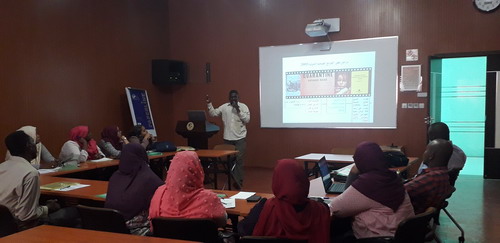
Khartoum, Sudan, 24 July 2019 – WHO has finalized a 3-day training of trainers for Ministry of Health staff in Sudan on the use and application of the strategic tool for assessing risk (STAR).
The STAR tool was developed by WHO to assess and prioritize risks to support planning for health emergencies as stipulated by the International Health Regulations (IHR 2005). Risk identification and prioritization will allow countries to better prevent, prepare for and reduce the level of risk associated with a particular hazard and its consequences on health.
The 35 participants were selected for their epidemiological knowledge and in-depth understanding of health delivery systems and services, especially in emergency settings. During the training, participants were introduced, using various methods, to the key principles of risk assessment and the appropriate context for using the STAR tool.
Following the training, participants will be deployed to different states across the country to roll out application of the tool at national and subnational level.
Dr Naeema Al Gasseer, WHO Representative in Sudan, encouraged participants to ensure that all risks in their respective states were identified and prioritized to help invest scarce resources to prevent the occurrence of events with severe impact on the health of the population. This is a task can only be achieved through the inclusion of all partners and civil society in the process. She also said that this exercise would contribute to WHO’s global target of 1 billion more people better protected from health emergencies.
“Protecting health and ensuring health security is at the heart of everything we do as WHO,” said Al Gasseer.
Related link
International Health Regulations


